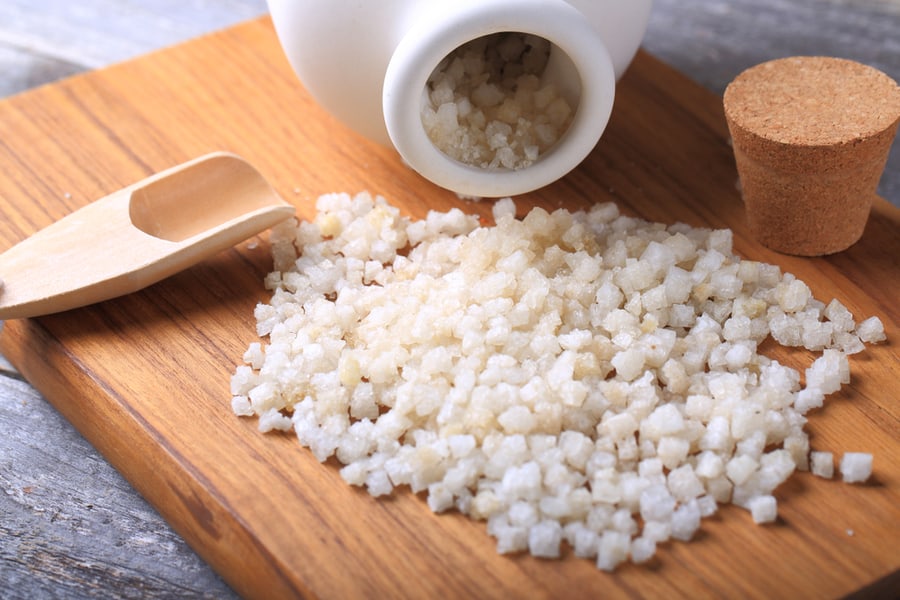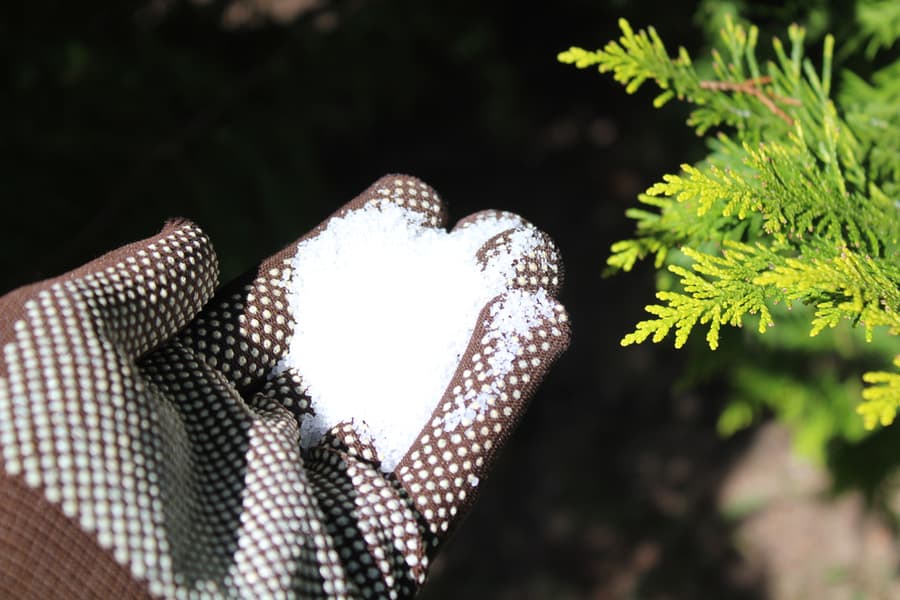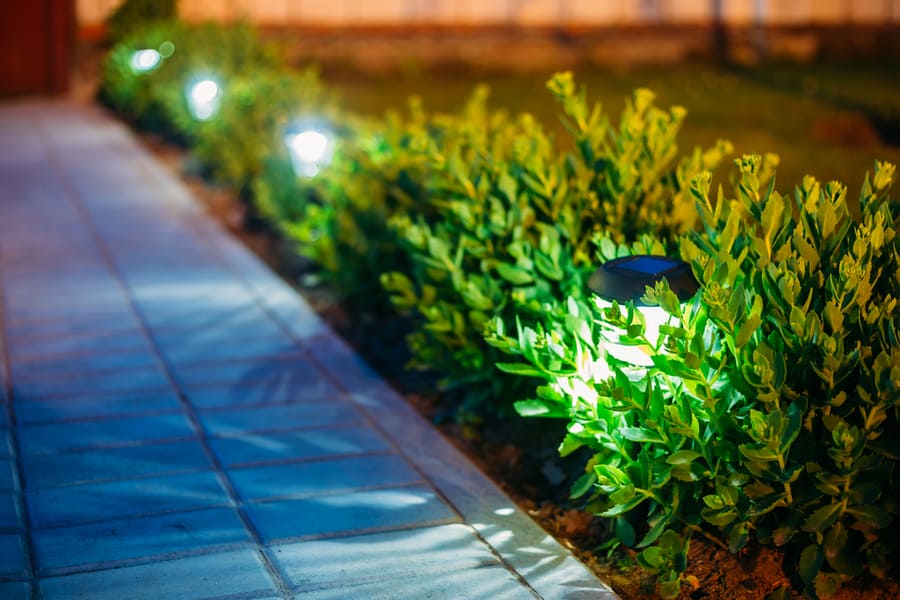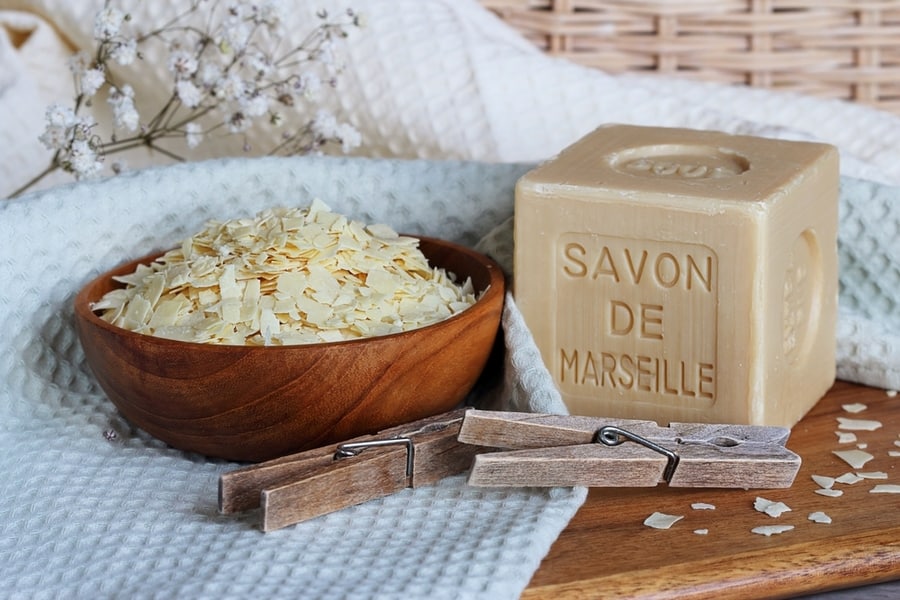
At first glance, raccoons may seem like cute, furry animals that you may want to keep as pets. But don’t let their seemingly innocent faces fool you. These animals are some of the most destructive garden pests.
Once they enter your property, they can cause massive damage overnight, destroying your favorite garden crops and rummaging through garbage.
Epsom salt is one potent deterrent you can use against these destructive creatures. So, how do you use Epsom salt against raccoons?
We will discuss that in detail in this guide.
If you have pets, raccoons will likely come for their food, as nothing is off-limits to these critters. As intelligent animals, raccoons are often challenging to deter.
Thus, whatever strategy you adopt will require strategic planning and precision. Careful application of Epsom salt can save you from these troublesome animals.
Here are some tips you should ensure while using Epsom salt in repelling raccoons:
- Focus on areas with confirmed raccoon sightings.
- Generously spread the salt wide.
- Frequently apply Epsom salt, especially after downpours.
In the sections below, we will discuss all there is to know about using Epsom salt as a raccoon repellant. We will cover what makes the salt an excellent raccoon repellant and how to apply it against these critters. Finally, we will answer common queries about using this salt to deter raccoons.
What Is Epsom Salt?

Epsom is a naturally-occurring mineral traced to the ancient Epsom town of England. This chemical compound comprises magnesium and sulfur and is often called magnesium sulfate.
But don’t mistake Epsom salt for regular table salt because although they look alike, they are different. We believe that Epsom salt is called salt only because of its chemical composition and nothing else.
It is better termed a bath salt, as beauty experts often dissolve it in bath water. In some cases, they may even recommend it for direct use on the skin.
However, due to its unpleasant taste, it is not advisable to use Epsom salt as a substitute for cooking salt.
Health experts suggest that Epsom salt has other therapeutic and medicinal benefits. For example, research studies link magnesium (in Epsom salt) to better sleep.
This magnesium is sometimes used in treating constipation, as it improves bowel movement by drawing water into the colon. When administered intravenously, it can help treat heart problems, relieve headaches, reduce brain swelling, and control muscle spasms.
Now, enough about the general benefits of Epsom salt. Let us see what it does to raccoons and how it can effectively stop these garden bandits.
Why Use Epsom Salt Against Raccoons?

One of the things about raccoons that makes them unique is their strong sense of smell. These critters use their active noses to locate food sources quickly.
But if you are determined to keep them off your property, you can use their senses of smell against them.
Epsom salt can cause irritations in their noses, forcing them to stay away from areas where the scent is strong. That is why we recommend it as a tested and trusted raccoon-repellent strategy.
In the next segment, we will explain how you can employ Epsom salt as a defense against your raccoon problem.
How To Deter Raccoons Using Epsom Salt

Epsom salt has a beautiful scent to the human nose, but raccoons can’t stand it. So, sprinkling some around your property can help to keep them out.
Focus on areas with confirmed raccoon sightings, spreading the salt wide and generously.
Some top priority areas include vegetable gardens, garbage cans, and under fruit trees. Other areas are under your deck or porch, as those are spots where raccoons may go to hide.
However, note that using Epsom salt may require frequent reapplication, especially after it rains. Otherwise, wait for the scent to wear off, and then apply again.
Alternative Ways To Repel Raccoons

Although Epsom salt is effective, it is not the only way to keep raccoons off your yard.
Below are some other strategies you can combine with this method:
1. Keep Access Points Closed

Raccoons have human-like palms, which they can use to manipulate doors and locks. Thus, it is advisable to lock doors, windows, and other access points through which they can enter your property.
Pay close attention to any door or window leading up to your attic, down the basement, porch, or deck. These are secluded spots where raccoons love to nest and hide from perceived danger.
2. Apply Predator Urine

Another thing that scares raccoons away is their predator’s smell. Many more giant animals hunt predators, so you have a list of options to use against troublesome raccoons.
For example, you can get some pre-packaged fox urine from local stores or online platforms to use against these critters. The smell of fox urine deceives them into thinking a predator is nearby.
The result is that the raccoons will relocate to another location to preserve their lives. Pour this predator urine around areas with raccoons activity and wait for them to disperse in days.
3. Try Natural Oils

Most people use oil diffusers to keep their homes smelling nice and fresh. But like Epsom salt, raccoons can’t stand the scent of natural oils. So, you can keep your home smelling nice while repelling raccoons simultaneously.
Peppermint oil is one of the most potent aromatic essential oils that raccoons find highly unpleasant.
Get your hands on peppermint repellant spray, use it around your property, and watch the raccoons disperse.
4. Use Bright Lights Against Raccoons

Remember that raccoons are nocturnal animals and will run away from sunlight or anything that exposes them. Bright lights mimic sunlight and confuse the animals into thinking they are in danger.
You can beam bright lights in the direction of raccoon activity to scare the pests away. This safe repellant strategy will not hurt the raccoons in any way.
Like most nocturnal animals, a raccoon’s eyes are sensitive to colorful, flashing lightbulbs. So, get some repelling lights from any local store, preferably red.
Rechargeable, portable options are the most convenient because they are easy to set up. You can hang these lights in your garden or near your garbage bin, depending on where there is raccoon activity.
The flashing lights will disturb all raccoons on your property until they stop coming around.
5. Apply Soap to Your Yard

We said earlier that raccoons have active noses, but natural scents are not the only effective deterrents. The chemicals in soap bars can keep these critters off your property.
Distribute soap flakes around your fence’s perimeter to create a formidable barrier against them. Alternatively, dump some soap bits near their food sources and hiding spots.
The potent smell will discomfort and chase the raccoons away.
Conclusion
To recap, we said certain smells could help deter raccoons from any property. Epsom salt is one of these powerful scents, and above, we explained how to use it against these pests.
However, note that this strategy and others highlighted in this article are not foolproof. If the problem persists or the raccoon population is too high, you may need to hire pest control experts.
Frequently Asked Questions
Can Trash Bags Repel Raccoons?
Some trash bags double as scented repellants. This means they release an aroma that discourages raccoons from digging in the trash for food. So, sure, trash bags can help repel raccoons.
What Do Raccoons Eat?
Raccoons are scavengers and are happy to eat anything from garden plants to fish, telephone wires, and even garbage.
Do Raccoons Spread Diseases?
Raccoons carry various infectious diseases that they transmit to humans through their wastes. These include rabies, roundworm, and leptospirosis.










